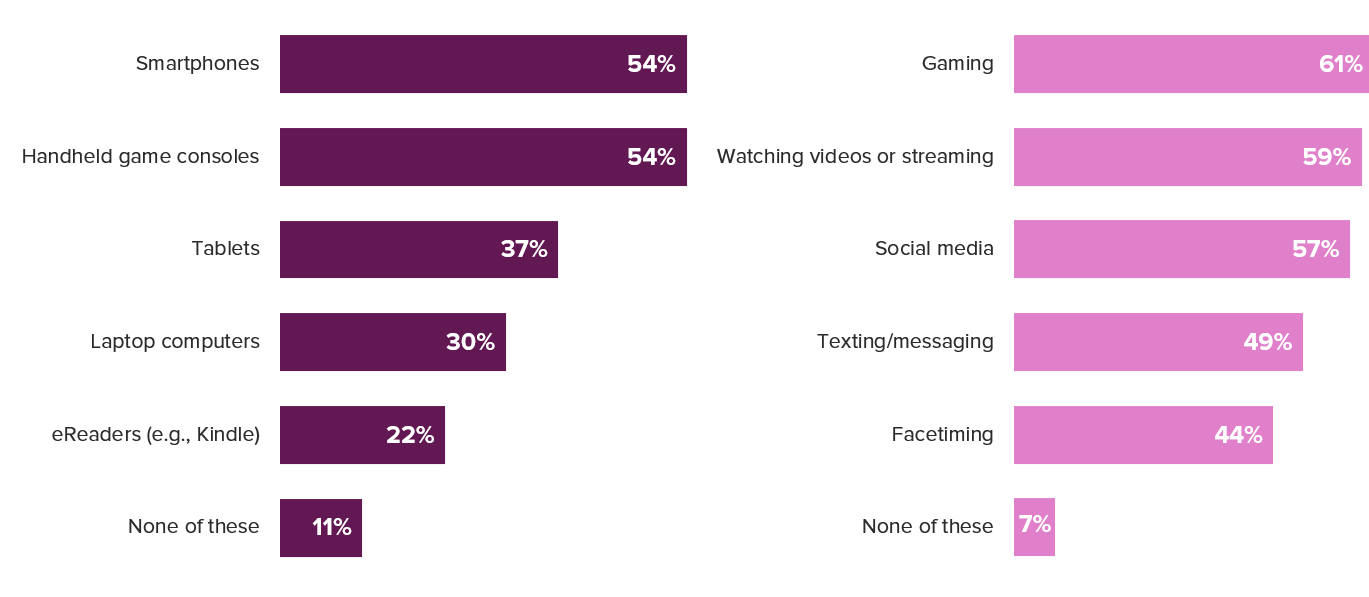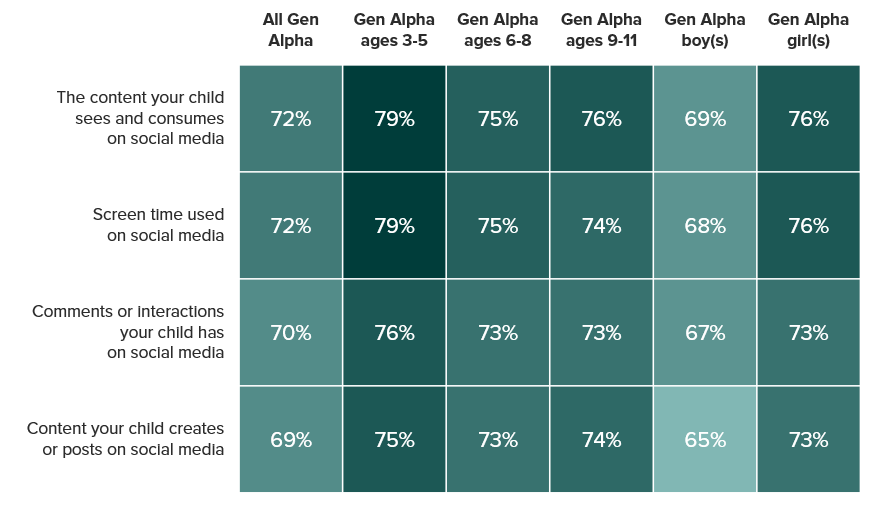Will Gen Alpha Grow Up in Schools Without Screens?

Sign up for our newsletter: “From A to Gen Z.” This biweekly email will put the biggest headlines about Gen Alpha, Gen Z and millennials into context to help readers better understand these key generations.
Welcome to Morning Consult’s From A to Gen Z newsletter. We put the headlines you’re reading about Gen Alpha, Gen Z and millennials into context with our high-frequency survey data to help you better understand exactly how and why they’re spending their time and dollars.
Next week, Morning Consult will publish new research on Gen Alpha. The youngest cohort of consumers, born from 2013 onward, already have distinct brand preferences and are influencing family purchases in a big way. Our latest report explores how these preferences and habits extend to the digital world, documenting everything from Alphas’ daily device usage to their favorite streaming titles and online content creators.
Today, however, we’re serving up some exclusive Gen Alpha data that won’t be published anywhere else — and it looks at how the adults in today’s kids' lives are involved in their screen time (or not).
📱🚫 For many Alphas, schools are phone-free zones📱🚫
Legal action to curb teen and tween technology usage is becoming increasingly popular. As of 2025, more than 1 in 5 U.S. states have passed or are working on legislation to limit social media access for children, and a similar number of states currently have active laws that restrict cell phone use in schools.
Morning Consult’s latest survey reveals that these efforts are even more widespread at the school district level: When asked whether their child(ren)’s school had any kind of smartphone or social media ban in place, more than half of Gen Alpha parents said yes on both accounts.

Large shares also said bans are in place for other devices and digital behaviors, including handheld game consoles (54%) and texting (49%), at their child(ren)’s schools. However, bans are notably less prevalent for technologies with more obvious ties to educational uses, such as laptops and tablets.
While the merits of school technology bans are still being debated, our data suggests that the concept itself is well on its way to becoming mainstream.
▶️ Explore more of our social media research.
🤳🧑🍼Gen Alpha parents are heavily involved in their children’s social media experience 🤳🧑🍼
In addition to being the guinea pigs for all kinds of novel legislation at school, Alphas are also being subject to fairly intense digital oversight at home — at least for now.
Our survey found that approximately 3 in 4 Gen Alpha parents said they monitor every tested aspect of their children’s social media activity “all” or “most” of the time, from the content they consume and create themselves to with whom they interact. This is true for all key Gen Alpha groups, with one exception: Gen Alpha boys. Relative to parents of girls, parents of boys were, on average, roughly seven percentage points less likely to say they closely monitor their children’s social media behaviors.

When deciding what social media content is appropriate for their children to engage with, a large share of Alpha parents identified a positive tone (68%), a lack of foul language (65%), and a lack of violence (65%) as requirements. Additionally, large majorities of Alpha parents reported using parental controls commonly offered by platforms, such as family account pairing and kid-specific feeds.
But despite this heavy-handedness, parents of Gen Alpha have no choice but to accept that screen time is inevitable — and some are even leaning on it as a stand-in for parenting in a day and age when caretakers are busier than ever before. For example, when asked why they allow their children to use social platforms, “to entertain them” (81%) outpaced any other tested option, including because their kid(s) “enjoy using social media” (76%) and because their kid(s) use social media “to talk to their friends” (73%).
▶️ Our full archive of research and analysis on Gen Alpha habits can be found here.
What Else We’re Reading
- Corporate Anxiety Is Fueling a Multimillion-Dollar Industry of Gen Z Translators (The Wall Street Journal)
- Three Key Differences Between Parents Across the Political Divide (Morning Consult)
- Gen Z women are the most liberal group in the country (The 19th)
- How TikTok keeps its users scrolling for hours a day (The Washington Post)
Upcoming
October 15 — Report: A Brand’s Guide to Influencers in 2026. The latest edition of Morning Consult’s annual flagship report on influencers unpacks how the changing contours of the internet — like the now-omnipresence of artificial intelligence and the resurgence of long-form content — are impacting consumers’ relationship with online content creators.
October 20 — Memo: The Gender Gap in Gen Z Beverage Behaviors. Morning Consult analyst Lindsey Roeschke breaks down the differences in what, why and how much Gen Z men and women are drinking (or not drinking!).
October 22 — Report: A Day in Gen Alpha’s Digital Life. In our latest report, my colleague Amy He and I explore how the youngest consumers are giving “screen time” a whole new meaning thanks to the several hours they spend on devices every day and their early adoption of adult-like digital habits, including “second screening” and content creation. Once published, it will live here.
Ellyn Briggs is a brands analyst on the Industry Intelligence team, where she conducts research, authors analyst notes and advises brand and marketing leaders on how to apply insights to make better business decisions. Prior to joining Morning Consult, Ellyn worked as a market researcher and brand strategist in both agency and in-house settings. She graduated from American University with a bachelor’s degree in finance. For speaking opportunities and booking requests, please email [email protected].